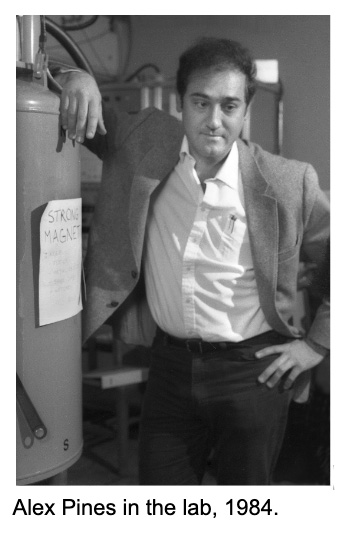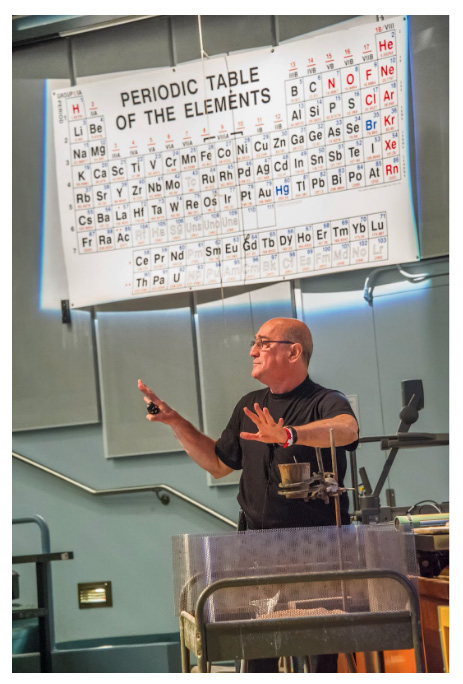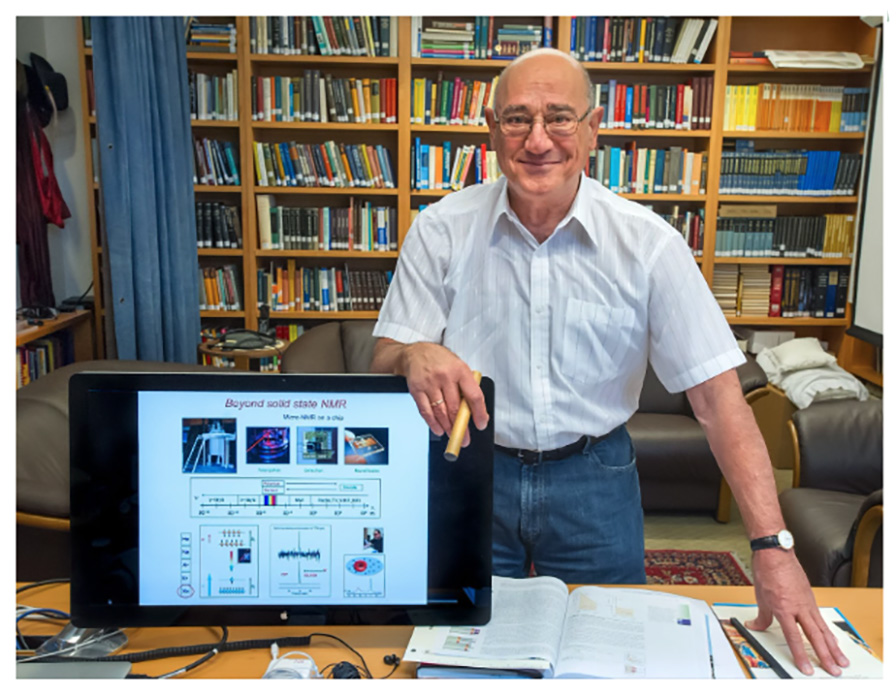Born in 1945, Pines grew up in Bulawayo, Southern Rhodesia (now Zimbabwe). He studied mathematics and chemistry at the Hebrew University of Jerusalem before pursuing his Ph.D. in chemical physics at MIT. It was during his graduate studies that he co-authored a landmark paper on time reversal in seemingly irreversible processes, titled “Violation of the Spin Temperature Hypothesis,” which demonstrated the Lochschmidt paradox and challenged the second law of thermodynamics. In 1972, he joined UC Berkeley and Berkeley Lab’s Materials Sciences Division, where he would spend the next five decades pushing the boundaries of what was possible in chemical physics.

“Alex Pines was a wonderful person, a beloved colleague, and a brilliant scientist who had an enormous impact on the scientific success of the Materials Sciences Division,” said Peter Fischer, Director of the Materials Sciences Division. “For over 45 years, he led an enormously impactful BES program on Nuclear Magnetic Resonance in MSD. This program produced close to 500 publications, including numerous papers in the highest-impact journals, as well as close to 30 patents and five R&D100 awards. He was also a dedicated mentor, which is reflected by his many students and postdocs who moved on to become world-recognized scholars in their fields.”
During his career, Pines and his students and postdocs (who refer to themselves as “Pinenuts”) revolutionized the field of NMR spectroscopy. Their achievements included developing multiple quantum spectroscopy, pioneering zero-field NMR (performing NMR spectroscopy without magnets), and creating novel approaches to molecular imaging.
“Alex Pines was a giant in NMR spectroscopy, revolutionizing the field,” said Jeff Neaton, Associate Laboratory Director for Energy Sciences, “and he was an inspiring colleague and cherished member of our community. He founded and sustained one of Berkeley Lab’s flagship Materials Sciences programs, and we will miss him dearly.”

Pines’ work opened new frontiers in chemical analysis, introducing groundbreaking techniques such as cross-polarization and proton-enhanced nuclear induction spectroscopy. These innovations made it possible to study previously inaccessible aspects of molecular structure and dynamics, fundamentally changing how chemists investigate materials at the atomic level.
The impact of Pines’ work was recognized through numerous honors, including the Wolf Prize for Chemistry, which he shared with Richard R. Ernst in 1991. He was elected to the U.S. National Academy of Sciences and named a Foreign Member of the Royal Society (London). His teaching excellence was acknowledged with the University of California’s Distinguished Teaching Award, reflecting his dedication to nurturing the next generation of scientists. In 2023, his legacy was permanently honored through the establishment of the Pines Magnetic Resonance Center at Berkeley’s College of Chemistry.
Pines will be deeply missed by his colleagues at Berkeley Lab, UC Berkeley, and the broader scientific community.
